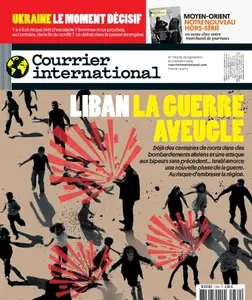ENSAIT - 2 Allée Louise et Victor Champier - 59056 ROUBAIX
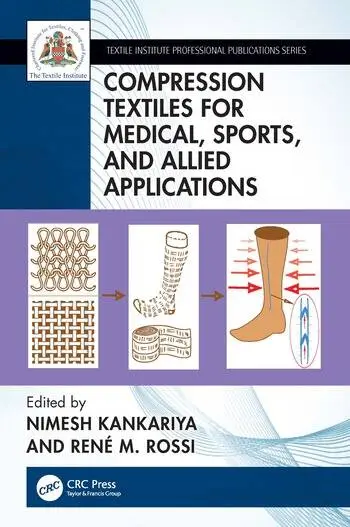
Éditeur : CRC Press (27 juillet 2023)
Langue : Anglais
Relié : 190 pages
ISBN-10 : 1032287942
ISBN-13 : 978-1032287942
Poids de l’article : 280 g
Dimensions : 23.4 x 15.6 x 1.18 cm
Textile-based compression therapy is used in a range of applications, such as for athlete and sport recovery, enhanced proprioception, compression spacesuits, and in the management of chronic diseases. This book provides an overview of compression devices and products, testing methods to measure the properties of materials used in compression devices, and design considerations based on dynamic body measurements. It also includes a model for predicting pressure and details the challenges in applying compression for various applications.
Chapters in this book:
This book is aimed at professionals and researchers in textile engineering, materials engineering, biotechnology, and the development of textile-based compression devices and products, and at such medical practitioners as phlebologists.
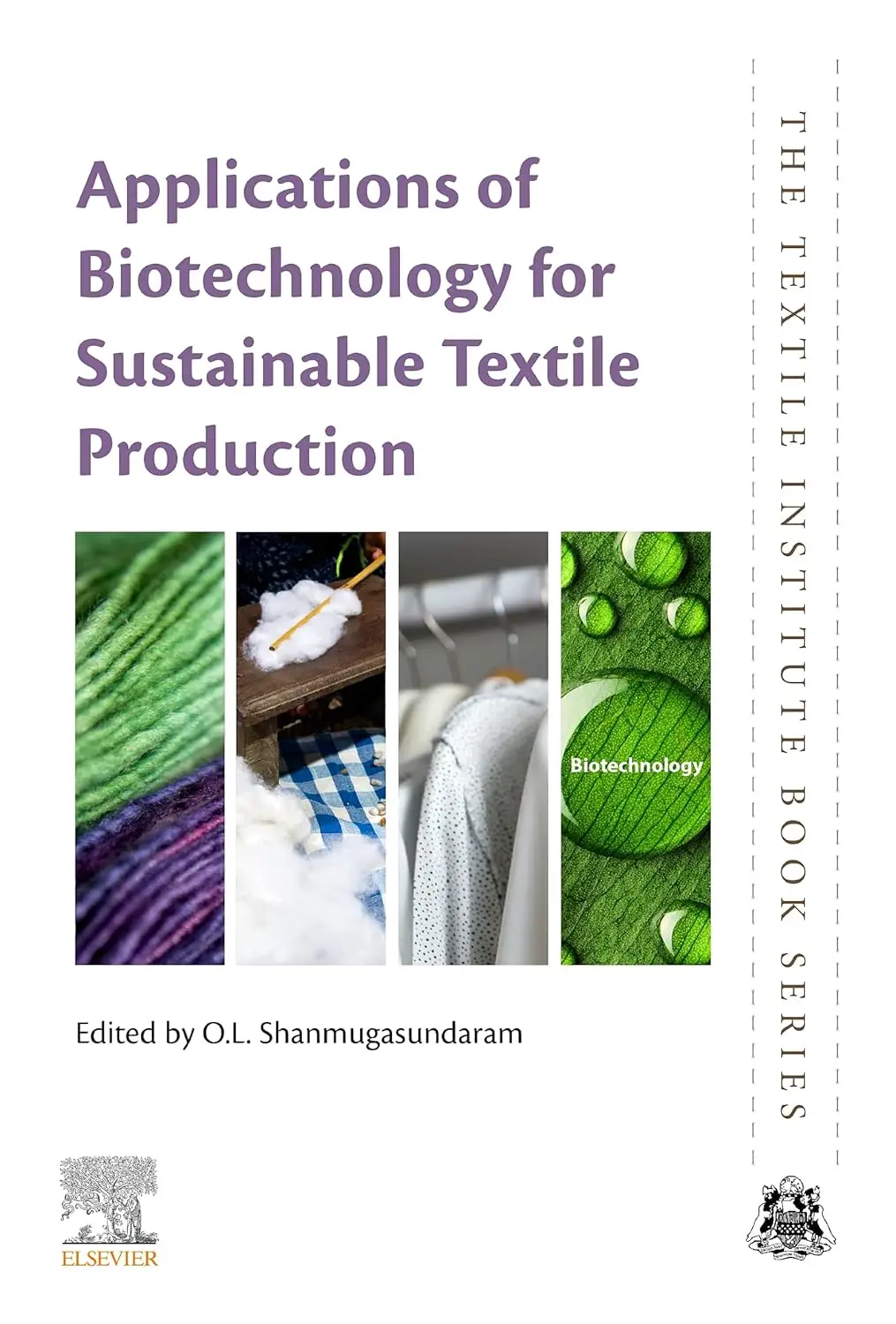
Éditeur : CRC Press (27 juillet 2023)
Langue : Anglais
Relié : 190 pages
ISBN-10 : 1032287942
ISBN-13 : 978-1032287942
Poids de l’article : 370 g
Dimensions : 23.4 x 15.6 x 1.18 cm
Applications of Biotechnology for Sustainable Textile Production is a practical guide to the fundamentals, methods, and future prospects for sustainable biotechnological and nanobiotechnological approaches to textile production.
The textile industry is highly motivated to reduce its use of natural resources, reduce waste, and cost. Processes such as dyeing, printing and finishing fabrics traditionally require a lot of water and can produce hazardous wastes as a by-product. In order to help improve these processes, this book evaluates different technologies, comparing them as ways of saving water, energy, material waste, and time, in addition to the reduction of wastewater and sludge. Technologies investigated include enzymatic treatments, ultrasonic treatments, advanced cotton fiber pre-treatment to increase dye receptivity, nano-biotechnology, plasma technology, and foam technology in the finishing process. Health risk assessments and complications resulting from usage of chemicals and other traditional processing technologies are also examined.
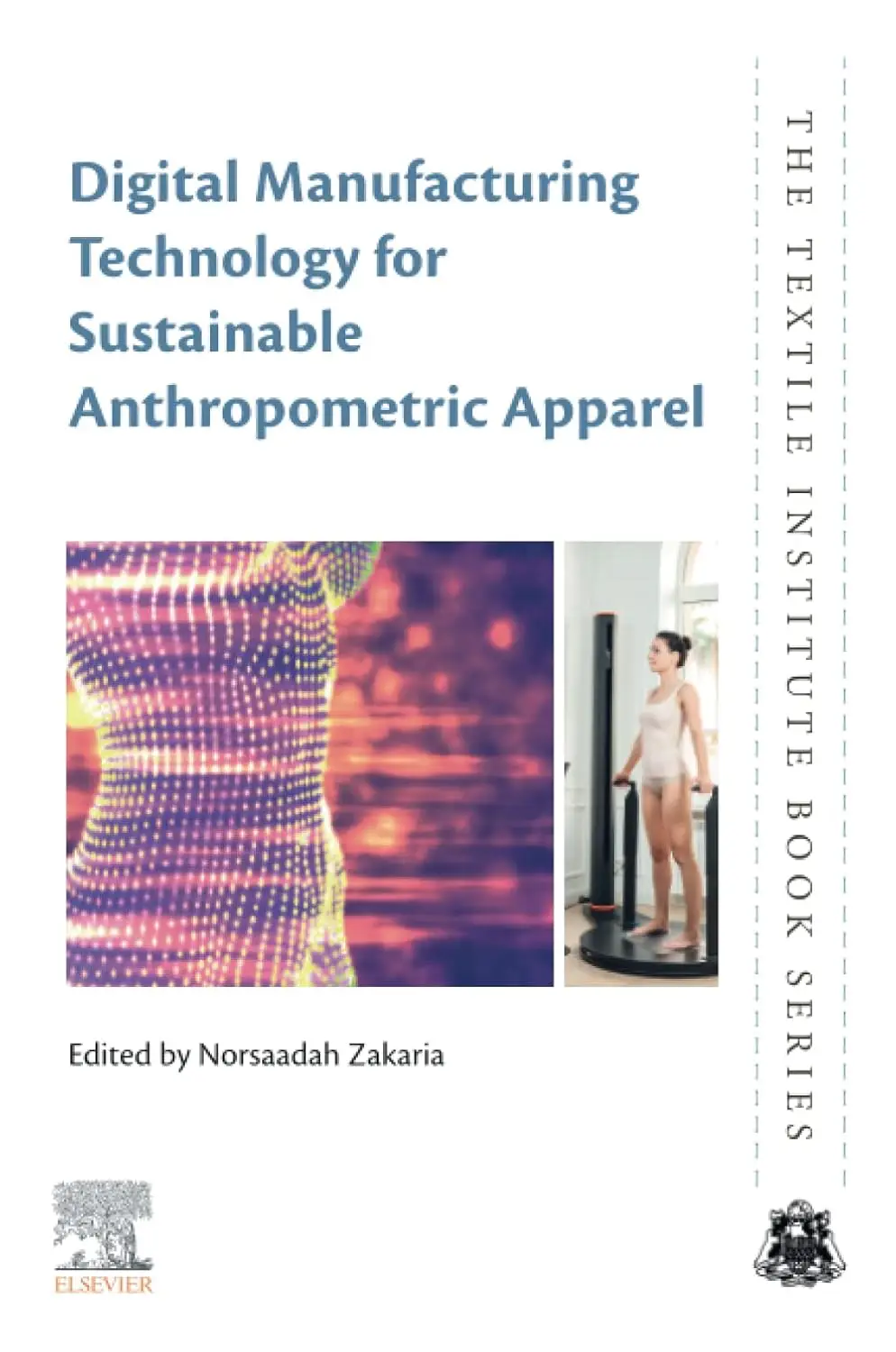
Publisher : Woodhead Publishing; 1st edition (June 1, 2022)
Language : English
Paperback : 252 pages
ISBN-10 : 0128239697
ISBN-13 : 978-0128239698
Item Weight : 14.8 ounces
Dimensions : 5.98 x 0.57 x 9.02 inches
Digital Manufacturing Technology for Sustainable Anthropometric Apparel is a thorough and practical examination of the state-of-the-art in anthropometric apparel manufacturing technology. The scale of the textiles industry, in economic as well as environmental terms, is so significant that new technologies and techniques that deliver improvements are of great global interest. Consumer preferences and government regulations are causing apparel manufacturers to prioritize sustainable practices, and at a time of unprecedented technological evolution and competitive pressure, integrating these measures with other priorities is a key challenge.
By combining the expertise of contributors from the worlds of technology change management and technical textiles engineering, this book provides a unique interdisciplinary resource for organizational as well as technical implementation. Newly developed Industry 4.0 technologies are addressed, along with the latest data collection and analysis methods.
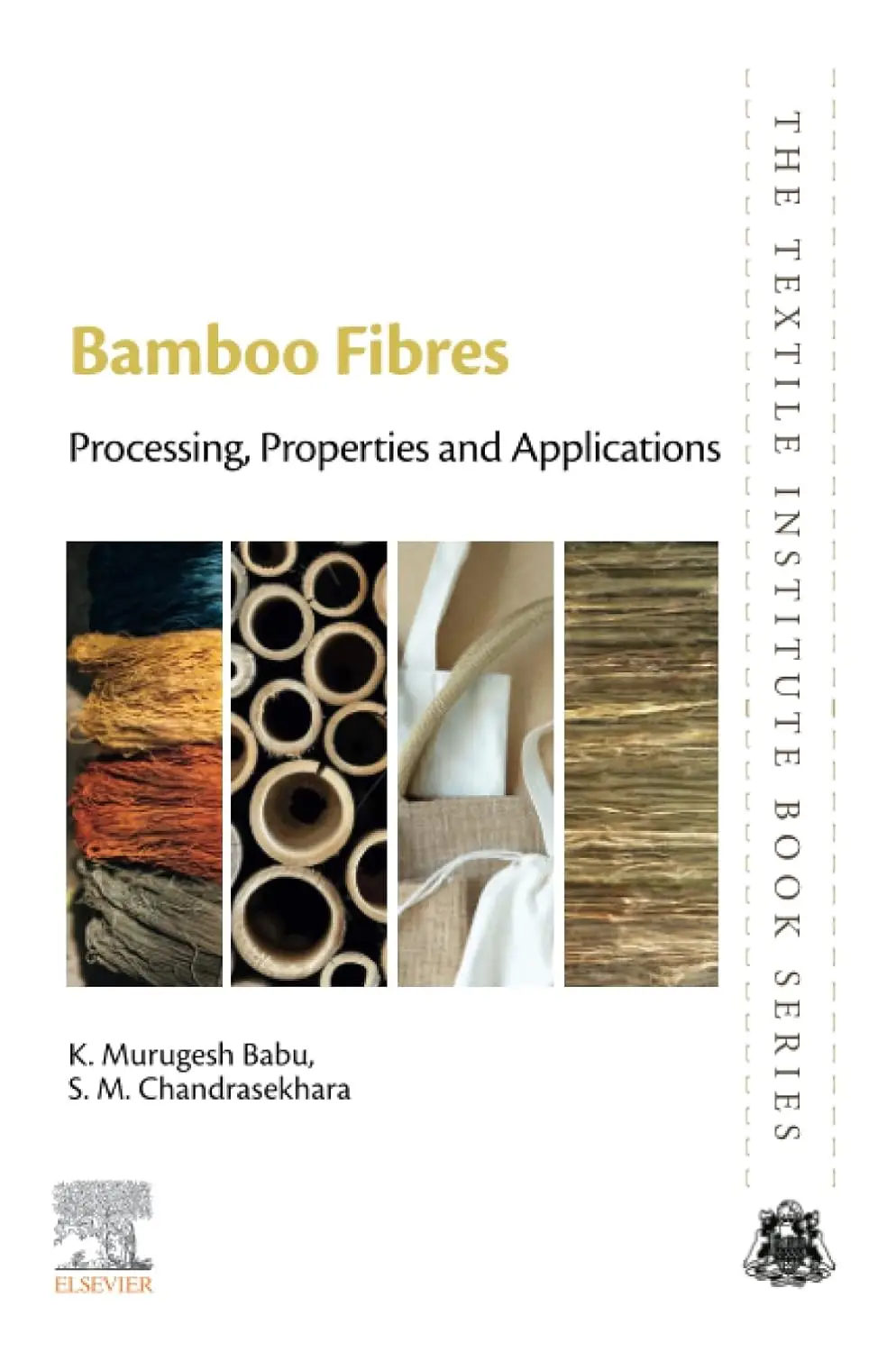
Publisher : Woodhead Publishing; 1st edition (November 21, 2022)
Language : English
Paperback : 252 pages
ISBN-10 : 0323857825
ISBN-13 : 978-0323857826
Item Weight : 2.2 pounds
Dimensions : 5.98 x 0.57 x 9.02 inches
Bamboo Fibres: Processing, Properties, and Applications brings together best practices from key stages of bamboo production and application, allowing readers to find new solutions for bamboo fibers. Chapters on bamboo fiber characterization and properties show the full range of functional uses of the material. When used as a replacement for petrochemical-based synthetic fibers, this abundant and cheap material/textile can significantly reduce the environmental impact of textile products. This book is an invaluable resource for fiber chemists, material scientists, fabric technologists, manufacturers, and researchers interested in sustainable textiles.
Bamboo fiber is a cellulosic fibre regenerated from the bamboo plant. It is highly sustainable being fully biodegradable and has strength comparable to conventional glass fibers. It has many other valuable characteristics, being bacteriostatic, antifungal, antibacterial, hypoallergenic, hydroscopic, a natural deodorizer, and resistant to ultraviolet light. Furthermore, it is highly durable, stable and tough and has substantial tensile strength. Due to its versatile properties, bamboo fibers are already used in the textile industry to make garments, in biomedical applications due to its antibacterial qualities, and many other areas.

Éditeur : CRC Press (21 novembre 2022)
Langue : Anglais
Broché : 124 pages
ISBN-10 : 0367706024
ISBN-13 : 978-0367706029
Poids de l’article : 1,05 Kilograms
Dimensions : 15.6 x 0.71 x 15.6 cm
Most photovoltaic (PV) installations utilise heavy conventional glass or polycarbonate panels, and even newly developed thin plastic or metal films for PV cell use may fracture during both construction and application. Textile fabrics, the most widespread flexible materials in everyday use, offer a solution to the need for lightweight, flexible solar PV generators. Solar Textiles: The Flexible Solution for Solar Power is about the incorporation and operation of solar cells on textile fabrics. The combination of textile manufacturing and solar PV cell technology opens up further avenues for both the textile and semiconductor industries. Thus, this book reflects the progressively increasing commercial interest in PV cell technology and the versatility that their integration in textiles provides.
Discusses textiles as electrical substrates
Explains the photovoltaic effect and associated parameters
Offers special consideration of solar cells on textiles
Compares fibres and fabrics and how to implement PV activity on a textile
Describes manufacturing methods outside of semiconductor technology
Includes applications open only to textiles
This work is aimed at textile technologists, electronic engineers, solar technologists, civil engineers and designers in building fabrics and architecture.
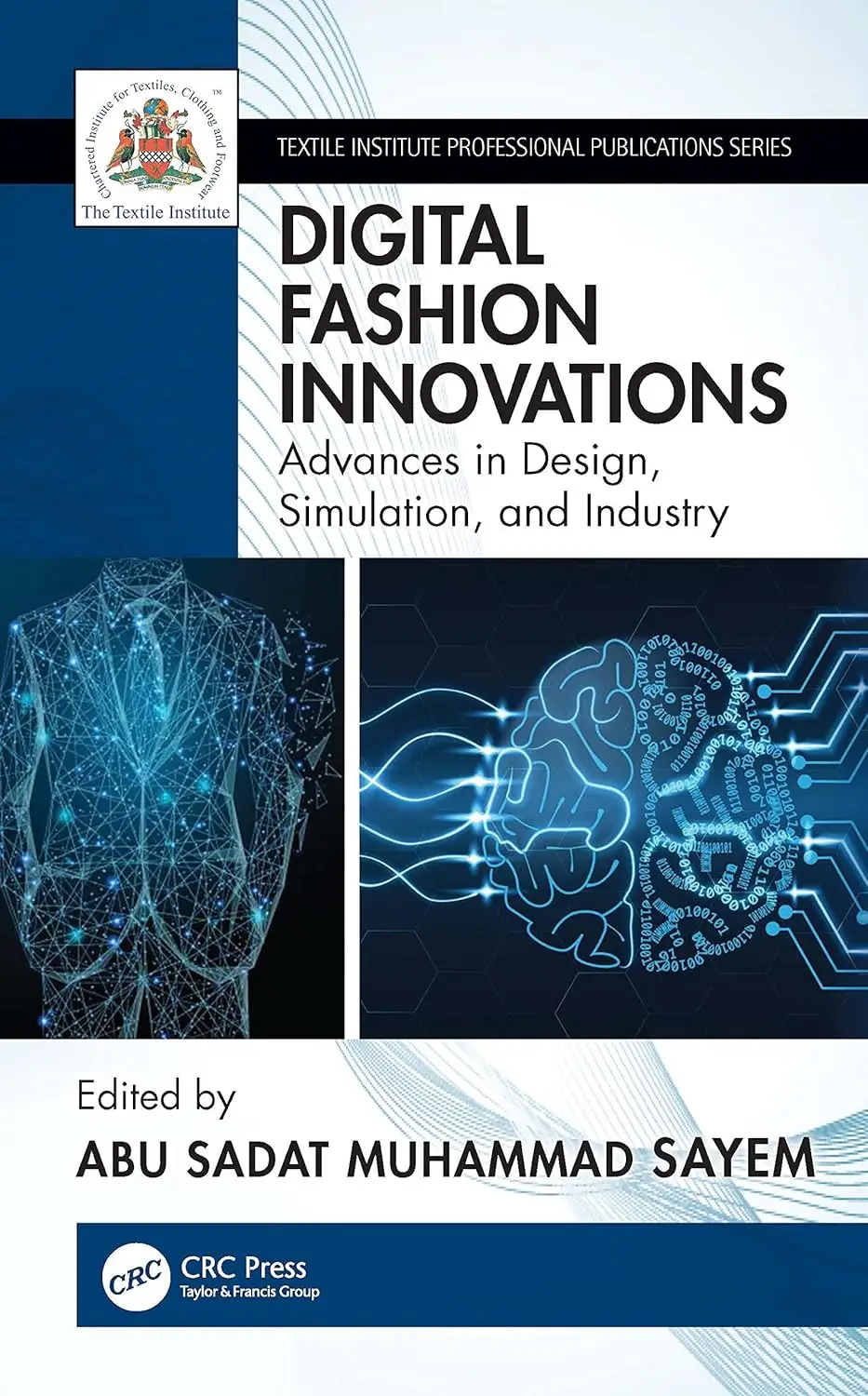
Éditeur : CRC Press (5 juin 2023)
Langue : Anglais
Broché : 218 pages
ISBN-10 : 1032207272
ISBN-13 : 978-1032207278
Poids de l’article : 320 g
Dimensions : 23.4 x 15.6 x 1.18 cm
Digitalisation is becoming a standard practice in the fashion industry. Innovation in digital fashion is not just limited to computer-aided design (CAD) and manufacturing (CAM), rather it runs throughout the fashion supply chain, from product life cycle management and developing new business models that promote sustainability to connecting virtual and augmenting reality (VR/AR) with fashion for enhanced consumers experience through smart solutions. Digital Fashion Innovations: Advances in Design, Simulation, and Industry captures the state-of-art developments taking place in this multi-disciplinary field:
Discusses digital fashion design and e-prototyping, including 2D/3D CAD, digital pattern cutting, virtual drape simulation and fit analysis.
Covers digital human modelling and VR/AR technology.
Details digital fashion business and promotion, including application of e-tools for supply chain, e-commerce, block chain technologies, big data, and artificial intelligence (AI).
This interdisciplinary book will appeal to professionals working in textile and fashion technology, those developing AR and AI for clothing end uses, and anyone interested in the business of digital fashion and textile design. It will also be of interest to scientists and engineers working in anthropometry for a variety of disciplines, such as medical devices and ergonomics.
Biographie de l’auteur
Dr. Abu Sadat Muhammad Sayem is the principal investigator of the UKRI project « Digital Fashion Network (2023-24) ». He has been working in the field of digital fashion since 2004 and has been chairing the annual event « Digital Fashion Innovation Symposium » since 2020. His ongoing research at the Manchester Metropolitan University covers the areas of digital prototyping, sustainable materials and process innovation, and smart garments. He obtained a PhD from the University of Manchester, an MSc. from the Technische Universität Dresden and a BSc. from the University of Dhaka. In the past, Dr. Sayem worked as an Associate Professor in the Textile Department and as the Head of the Centre of Scientific Research and Innovation of the Southeast University, Bangladesh. He is a member of the UKRI Talent Peer Review College, a fellow and trustee of the Textile Institute, a fellow of the Higher Education Academy (Advance HE, UK) as well as an alumnus of the Commonwealth Scholarship Commission, UK and the Deutscher Akademischer Austauschdienst (DAAD), Germany.


